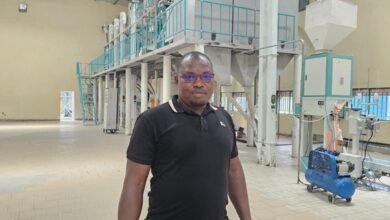Focus: a new Togo-EU partnership

Togo and the EU unveiled on January 12 a new agreement by which the European Union and its Member States will pool their cooperation tools in order to better support the actions undertaken by the national development plan of Togo.
By the editorial staff
A new partnership format. This is in substance the objective pursued by Togo and the European Union (EU) with the Joint Multiannual Programming Document (JMPD). Adopted on December 16, 2021 and officially presented in Lomé on January 12, 2022, the DCP was developed in an inclusive approach with the EU, Germany and France, and seeks to define the intervention framework of European cooperation in support of the efforts of the Government of the Republic of Togo until 2027.
Three priority areas
In this regard, the DCP is in synergy with Togo’s National Development Plan (NDP), which has since been renamed the « Roadmap 2020-2025 » due to the health crisis. Designed to be implemented in two consecutive phases (2021-2024 and 2024-2027), the DCP is expected to mobilize several hundred million euros in financing, through various intervention levers (loans, grants, guarantees, technical assistance, etc.). This support will focus primarily on three priority areas: human development, particularly in terms of socio-economic inclusion and access to basic public services; sustainable agribusiness and natural resource management; and the consolidation of a peaceful and resilient society in Togo through the promotion of security, good governance and decentralization.
More broadly, the adoption of the DCP is an important step in « the concrete materialization of [the commitment] of the European Union, particularly in the field of cooperation and European solidarity with Togo, » said Ambassador Joaquìn Tasso Vilallonga, head of the Delegation of the European Union in Togo. The document specifies in particular the approach of the « Team Europe », composed of the European Union, France and Germany, as well as their respective financial and development institutions, namely the European Investment Bank (EIB), the Agence Française de Développement (AFD), the Deutsche Gesellschaft für Internationale Zusammenarbeit (GIZ) and the Kreditanstalt für Wiederaufbau (KfW). In other words, the European partners will identify possible synergies and pool their intervention tools in order to increase efficiency. This is a considerable challenge when you consider that the EU is the leading provider of public aid in Togo, and beyond in Africa, with nearly 20 billion euros per year devoted to various development programs.
More than 243 million euros committed in the first year
In concrete terms, the EU actions that will result from this joint programming will be financed by a new instrument called « Europe in the World », which replaces the European Development Fund (EDF). For the first year of implementation of the FCD, « Team Europe » is expected to commit more than 243 million euros – nearly 160 billion CFA francs – for new projects in the three priority areas mentioned above. The adoption of the new cooperation format between Togo and the EU also coincides with the entry into force of the Post-Cotonou Agreement, which renewed the partnership between the African, Caribbean and Pacific [ACP] Group of States and the European Union when the Cotonou Agreement expires in 2020. This is the signal that, in the complex historical relationship between Europe and the African continent, a new paradigm may be emerging.
Find out more:






